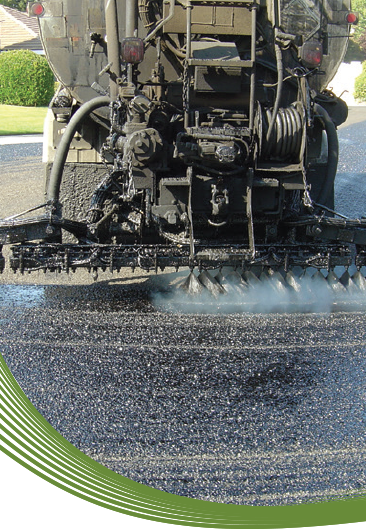Sustainability

Sustainability at RAETEX
- 100% Local
RAETEX is a 100% local Qatari company, operating in the country since 2010
- Reduced Waste
RAETEX binders help reduce greenhouse gas emissions by taking advantage of recycle-based manufacturing
- Saving Energy
RAETEX binders are formulated specifically to decrease the energy and heating requirements during the production and construction of roads
- Starting Green
1/3 of the world’s greenhouse gas emissions are because of transport. RAETEX binders use local raw materials in order to reduce emissions related to transportation.
- Cost Effective
RAETEX binders improve the performance and lifetime of pavements by 5-10 years, resulting in substantial life cycle cost savings
- Trusted Service
The little things make a difference – RAETEX provides tailored technical support and quality monitoring throughout the supply chain.
Sustainability forms an integral part of our company principles. While this concept includes the long-term economic sustainability of our business model and the social wellbeing of our staff and all those we work with, the concept of sustainability as it relates to the natural environment is increasingly relevant today.
Climate change and environmental change are two of the key challenges facing the global community. Science clearly indicates that if we continue on our current path, we risk inducing further water shortages, extreme weather, declining conditions for food production, ecosystem loss, sea-level rise and ocean acidification – all of which threaten further human development (1). As a result, we risk leaving our planet in an unacceptable and irreparable state for future generations.
In order to address this challenge and realize the enormous opportunities that a sustainable future presents (2), RAETEX has committed to continually improve on its own environmental footprint in all areas of operation for its products. At its core, we have committed to reduce the pressure we create on our environmental boundaries by increasing the sustainability of our supply chains and developing new sustainable technologies that reduce both production and ‘application’ emissions, pollution and waste associated with both our operations and products. The National Sustainability Council of Australia (2013) provides a nice summary on the thinking behind this strategy :
“Sustainable businesses recognise that one of the most significant threats to their longevity and performance over time is the failure to adapt to changing circumstances— whether those changes occur in the environment and society or through disruptive technologies or shifting customer preferences. Businesses that integrate sustainability in their planning and performance are likely to avoid unnecessary business costs and improve productivity, find new opportunities and markets, build reputation and support from employees and customers, minimise regulatory risk and compliance costs, and boost access to capital.”
Please contact us to find out more about our about our mission to build a circular economy, safeguard our environment and catalyze the shift to true sustainable development.
(1) For further information and resources on the current state of global change and the challenges ahead, please visit the Earth League and Global Challenges Foundation’s Earth Statement references at earthstatement.org/references.
(2) A vision for which is outlined well in the World Business Council for Sustainable Development (WBCSD)’s Vision 2050 and Action 2020 frameworks.

